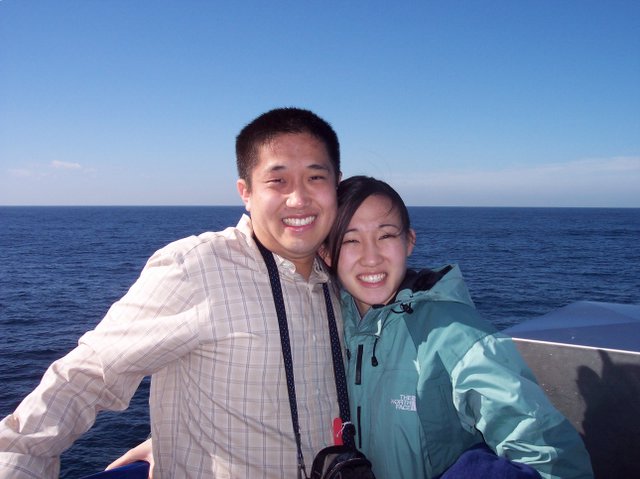
In the midst of a mad month, Team Japan's exciting brand of baseball proved to be too much for the highly talented "amateur" Cuban team. With the two Cuban blasts over the left field wall, the Japanese pitchers gave up six runs, one fewer than the previous four games combined. Having not recorded a home-run, or even a triple of their own, 6 runs would have been disastrous to the Japanese team that appeared in the second round. However, with bats awoken in the battle with Korean on Saturday, the Japanese combined bunts, fortunate baserunning, and timely hits to record their highest totals since their drubbing of the two Chinese teams. The 10-6 victory is a triumph for the Japanese team, but is also a triumph of situation baseball.
At the very start of the game, (which was not televised because of an NIT overtime game), Sadaharu Oh Kantoku and Hank Aaron shook hands before the ceremonial first pitch. I can only imagine the synergistic power of over 1600 combined homeruns. Japan took that energy into the first inning and scored 4 runs in a very non-Oh/Arron way. An infield single, a walk, a steal, a hit batsman, and one hit. After Paret's homerun in the bottom of the first, the score stood 4-1 until the 5th.
In the fifth, the Japanese, lead by Ichiro's leadoff double, combined an array of hits to post two more runs. Matsuzaka had pitched well until this point, they only run scored against him coming of a hanging breaking ball. He scattered three other hits, and got out of a couple of jams with a mean slider and a 94-fastball that dotted the corners of ESPN's K-zone. Into the bottom of the 5th came the submariner Watanabe, who retired the side on 10 pitches.
Japan had appeared to be invincible going into the 6th. At the bottom of the frame, Kawasaki, who had made a couple of top ten worthy plays in earlier innings, made an error which allowed a two-run inning for Cuba. In the 7th, Watanabe overcame two more errors, another by Kawasaki, to escape into the 8th.
Watanabe's luck ran out in the 8th as Gourriel bounced a single over Watanabe's head and in front of Nishioka. Oh Kantoku brought in the southpaw Fujita, who promptly retired his lefty counterpart Borrero, but could not get the switch hitting Capeda. As Capeda's two run shot landed in the left field stands, the once five run lead was down to 1. With the momentum on Cuba's side, Japan need a stopper. Enter the closer Otsuka. After retiring the side, he brought Team Japan in for their final at-bats.
Kinjo's roller down to 3rd, in the top of the 9th, seemed like it would not be difficult for Enriquez, who earlier caught the speedy Kawasaki with a spectacular one-handed play. However, his low throw short-hopped Borrero and Japan caught a break.
With Kawasaki up again, Japan was looking to bunt the runner over and manufacture a run. Enriquez sniffed out his bunt down the 3rd base line and got the lead runner. After that, who would have thought Nishioka would follow that up with bunt past the hamstring ailed Palma for an infield single.
With runners on 1st and 2nd, Ichiro stood at the plate with an opportunity to drive in Kawasaki and further cement his place atop Japanese baseball. He delivered a single and provided the cushion Japan needed. Oh Kantoku continued his string of excellent substitution decisions and Fukudome delivered again off the bench with a 2-RBI single. In the middle of the 9th, the score stood 10-5. Three outs later, Japan became the first WBC champ.
The WBC in general was in my opinion a success. The level of play was high and the games had all the elements of classics. Tommy Lasorda said it was better than any World Series he was a part of.
There was also a collection of talent and parity amongst the top half of the teams that I don't think was expected. Furthermore, the mix of players showcased some of the talents outside of the A or NL. In good traditional baseball fashion, pitching seemed to be the key for success. Perhaps because many had never faced off before, pitchers seemed to have the advantage. Marti and Lazo stifled a talented Dominican team. A no-name from the Netherlands blanked Panama. The Korean and Japanese starters combined for ERA's under 2. The Korean team came out of no-where to get deep into the tournament and out of military service. In the end, two teams that didn't showcase an Papi, ARod, or Rocket, smallballed and teamballed their way into the finals.
If the alternative is a spring full of hearing about the bane of baseball, bad Barry Bonds, I relish the opportunity to learn more about the international players.
The American team fell short, but the WBC is a triumph of American spirit. The melting pot that is the MLB reflects the good in the good ol' land of opportunity. We are all from a different place, but we are gathered together to enjoy a Classic in the many chapters of our National Pastime.





